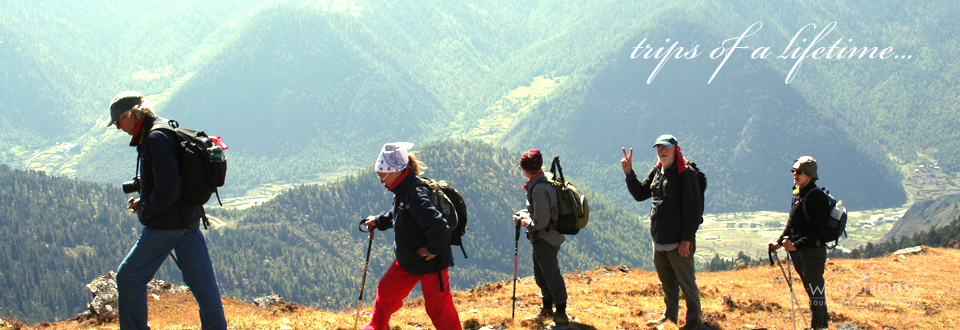The best time for trekking in Bhutan is during Spring (March to May) and Autumn (late September to early November). These seasons offer the most favorable weather, with clear skies, stunning mountain views, and stable trail conditions.
Most treks in Bhutan are at high altitudes, making them accessible only during a narrow window each year. However, a few low-altitude treks—particularly in the southern and subtropical regions—are ideal for winter months when the high passes are blocked by snow.
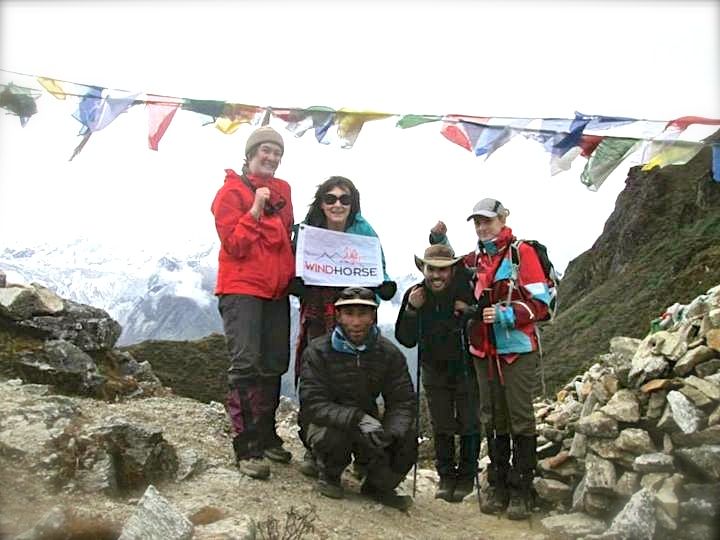
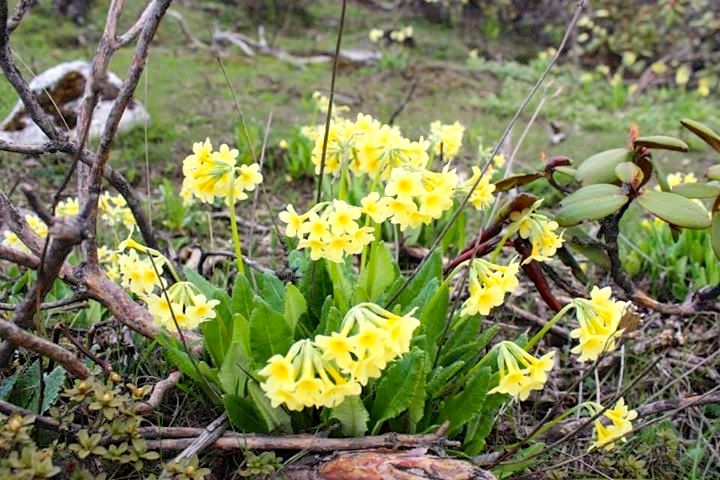
Spring (March to May)
Season: Pre-Monsoon | Altitude Range: 800–4000m
Spring marks the beginning of the trekking season in Bhutan. While early March can still feel like winter—with night temperatures ranging from -20°C to 2°C—days gradually become warmer with longer hours of sunshine and clear blue skies.
This season is best for:
- Rhododendron forests in full bloom
- Wildlife sightings as animals emerge from hibernation
- Lower-altitude treks such as:
- Samtegang Trek
- Nabji Korphu
- Bumthang Cultural Trek
Note: High-altitude routes like the Snowman Trek and passes on Laya Gasa trek often remain blocked by snow until end of April
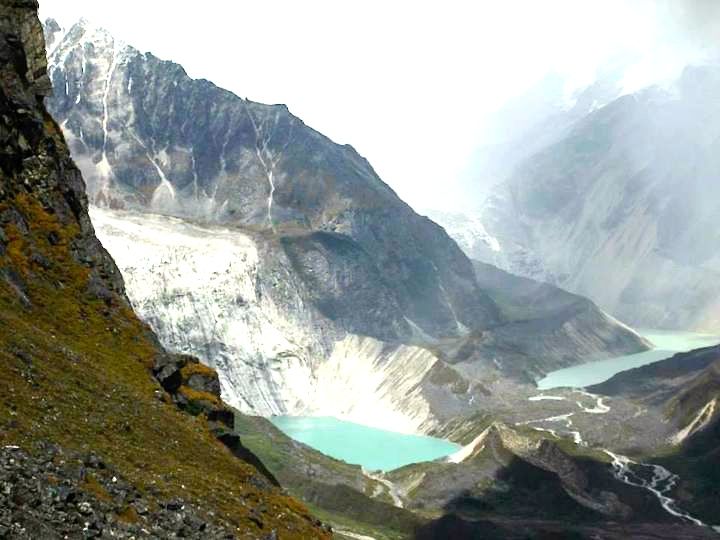
Autumn (Late September to Early November)
Season: Post-Monsoon | Most Popular Trekking Season
Autumn is widely considered the best season for trekking in Bhutan. The monsoon has cleared the air, leaving crisp skies, panoramic mountain views, and bright starry nights. Daytime temperatures are pleasant, while nights can drop to -10°C to 3°C depending on altitude.
Top reasons to trek in autumn:
- Stable weather with minimal rain
- Excellent visibility of Himalayan peaks
- Perfect conditions for high-altitude treks like:
- Snowman Trek
- Laya Gasa Trek
- Jomolhari Trek
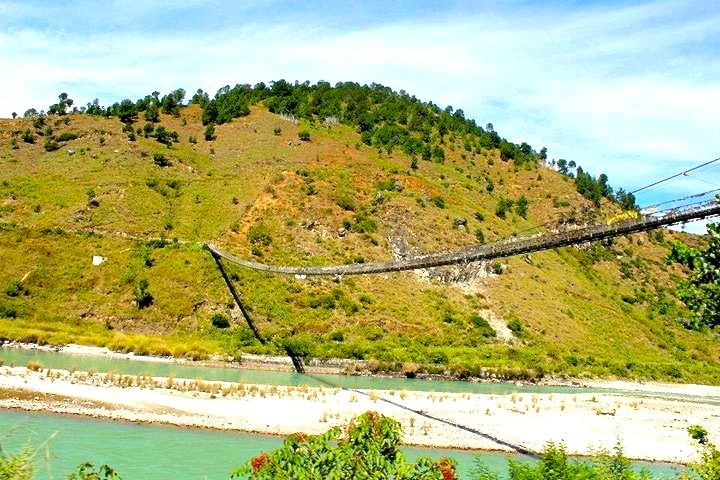
Winter (Late November to Early March)
Best for Low-Altitude Treks
High passes become inaccessible due to heavy snowfall in winter, but low-altitude treks enjoy mild, dry weather—ideal for cultural and village-based trekking experiences. Trails are quiet, forests are serene, and the weather is generally stable.
Recommended winter treks:
- Samtegang Winter Trek
- Nabji Korphu Trek
- Manas Trek
⚠️ These treks are not recommended from June to early September due to wet, muddy conditions during the monsoon.
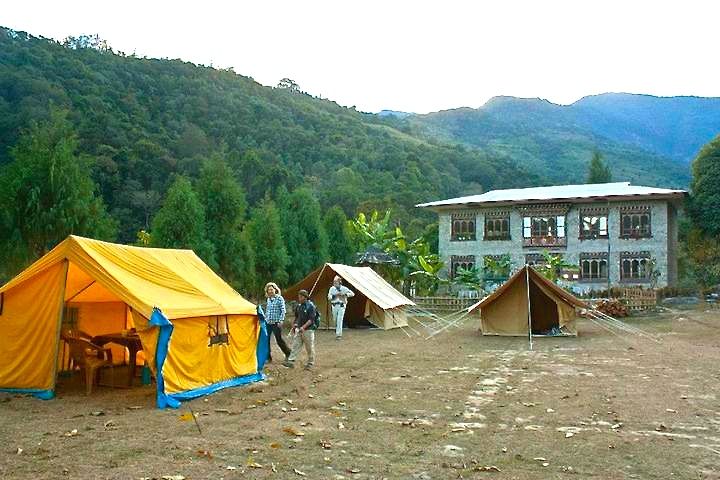
Monsoon & Alpine Flower Season (June to August)
While not ideal for most treks due to heavy rain and slippery trails below 2800m, this period offers a hidden gem for nature lovers: alpine blooms. In high-altitude areas like Lunana (parts of the Snowman Trek), Laya village or Merak & Sakteng, rain is relatively light due to the mountain rain shadow, making it possible to trek under the right conditions.
Final Notes
Weather in the Himalayas is unpredictable, even during the best seasons. We plan all treks with flexibility and prepare thoroughly for variable conditions. Whether you’re chasing wildflowers, crisp Himalayan vistas, or winter peace, Bhutan has a trek that fits the season.
Trekking Suitability by Route & Season
Here is a simplified guide showing the best and moderate months for popular trekking routes in Bhutan. This compact layout is easier to view on mobile and helps you plan your trek by season.
| Trek | Best Months | Moderate Months |
|---|---|---|
| Druk Path | Mar-May, Oct & Nov | Jun, Aug, Sep, |
| Jomolhari (to Jangothang) | Mar-May, Oct & Nov | Jun, Aug, Sep, |
| Snowman Trek | Apr, May, Oct | Mar, Jun–Sep |
| Bumthang Trek | Mar – May, Oct & Nov | Jun–Sep |
| Haa Trek | Mar-May, Oct & Nov. | Jun–Sep, Nov |
| Dagala Trek | Apr-May, Oct & Nov | Mar, May–Sep, Nov |
| Samtengang | Jan–Apr, Nov–Dec | May, Sep–Oct |
| Nabji Korphu | Jan–Apr, Oct–Dec | May |
| Merak Sakten | Apr, May, Oct | Mar, Jun–Sep, |


 +1 612 869 4949
+1 612 869 4949